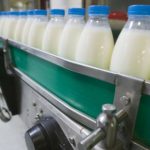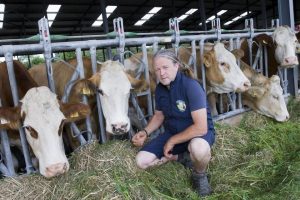
In a letter sent to dairy farmers across the country earlier this month, the minister highlighted that calves that are not dairy replacements must be looked after as well as those that are.
In the letter sent to farmers, Minister Creed said: “The way that Irish farmers care for their animals is evident in the quality of our stock and our produce. It is farmers who make the critical decision when it comes to the health and welfare of their animals and when it comes to breeding, and this is generally done to a very high standard in Ireland.”
“As the majority of animals born on dairy farms are not needed as dairy replacement stock and are often moved off the farm of birth at a young age, it is really important that these animals are as well looked after as those being retained, so that they may be successfully marketed/traded to other livestock sectors,” he stressed.
The minister added that high calf welfare standards must also be maintained in livestock marts, by transport operators and in lairage facilities.
“In this context, all stakeholders in the dairy sector must play their part in ensuring the welfare of calves,” Minister Creed said.
- Plan to have adequate facilities (calving pens, calf accommodation and feeding equipment) and labour resources reflecting the number of cows on the farm for the calving period, so that you can provide the necessary care for all calves born;
- Have a robust calf care regime which ensures that all calves receive sufficient colostrum within two hours of birth and are subsequently fed with milk/milk replacement twice a day (TAD) in line with Animal Health Ireland (AHI) recommendations;
- Develop a plan for calves not being retained on the farm, checking now with trading partners to be certain that you have an outlet for these calves when you need it;
- Develop your breeding plan for spring 2020 to maximise the future beef potential of any calves that will not be required as replacement dairy stock, using the dairy beef index (DBI).
Concluding, the minister said that the department will “continue to deploy its inspectors to undertake the statutorily required risk-based animal welfare inspections at relevant locations”, adding that he has also made funding available to assist with calf rearing.

























